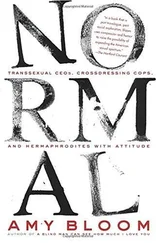Dear Beth ,
I’ve spoken to your parents several times and told them of my plan to visit you. They couldn’t care less, so I am coming this Saturday morning, with cider and doughnuts. Just like old times …
Kentucky Fried Chicken. (“Terrible stuff,” Mr. Cairn said. “Awful,” Frances said, and she passed the cole slaw and the biscuits they loved, a triple order every time, and the creamed spinach. It was a relief to eat hot food that neither of them had to cook, and they had done this every Friday night since Frances moved out to go to social-work school.)
“I’m raking tomorrow,” Mr. Cairn said. “Want to help out your old man?”
“I can’t. I’m following up with a patient. The girl who contracted necrotizing fasciitis.”
Mr. Cairn loved to hear about the dreadful things that befell Frances’s people and to hear about the things that she did to help them bear their various crosses. He might have gone into social work himself, instead of hardware, if anyone had encouraged him. Mr. Cairn shook his head sympathetically. “I can’t imagine.” He finished his second biscuit. “The one with one foot and the father who’s a ladies’ man?” and Frances nodded. One night, instead of going back to her apartment after work, she’d driven over to watch Law & Order with her father, and she told him all about flesh-eating bacteria and the Shenkers.
“Is this an all-day visit?” Mr. Cairn said. “Because I don’t like the sound of this household.”
“I won’t be there for more than an hour.”
Mr. Cairn pushed his chicken around on his plate.
“I could drive you,” he said.
“Daddy, you have to get a life.” Frances smiled when she said it.
Mr. Cairn put his fork and knife on his plate and he took Frances’s hand.
“There’s someone special I’d like you to meet,” he said.
When Frances’s mother died, her father staggered from room to room, crying. Frances and Sherri would walk into the garage for their bikes and find their father sprawled on the hood of the car, face buried in his chamois cloths. One Sunday morning, Sherri dumped a basket of wet clothes in the middle of the living room. “I can’t do it,” she said. “I mean, I actually cannot do laundry. Daddy’s crying in front of the dryer.”
The first day of first grade, Frances had to walk next door and ask Mrs. Cohen to fix her hair because her father was crying so hard, he couldn’t do her braids. Mrs. Cohen did them and did them again the next day, and on the third day Mr. Cairn took Frances to the barber and said, Please give her a haircut. Something short. And pretty.
If he had married Mrs. Cohen he would not now be sitting in front of her with a crumb of fried chicken on his face, telling her to get ready to meet someone special.
“Sure,” Frances said.
“Maybe she’ll take me off your hands,” Mr. Cairn said.
S.S. ENDEAVOR
A short, wide woman with Mrs. Shenker’s sharp chin and thick eyebrows opened the door.
“I am—” Frances said, trying to hold on to her muffler and her purse and the bag of doughnuts and the jug of cider and the brochure about a camp for teenagers with physical limitations, and Mr. Shenker came into the front hall and opened the door wider.
“Hey. This is Miss … Frances,” he said. “Sylvia, this is Frances. Frances, my mother-in-law, Sylvia Winik. Frances spent time with Beth at the hospital. Jesus, Frances, you look like Shackleton on his way to the North Pole.”
“I doubt it,” Frances said. Frances was raised on Ernest Shackleton and brave Robert Edwin Peary and that moron Robert Scott and the tragedy of his ponies, eaten by the explorers, because Captain Scott was too stupid to use a dog team. (“Too much an admirer of dogs, the way Englishmen sometimes are,” her father had said, as if they both knew people like that, people who loved their dogs so much they would try to go to the South Pole with horses, to spare the dogs discomfort.) Frances knew the beginnings and ends of every polar expedition and nothing she ever did was going to be like Ernest Shackleton, who was a hero in her household, like Kennedy or King, and Mr. Shenker could just keep his big, fat, condescending, adulterous mouth closed.
“You might be thinking of Lawrence Oates,” Frances said, and Mr. Shenker looked at his mother-in-law and smiled. Lawrence Oates was one of the youngest men to accompany Scott and also the smartest, and when he understood he was dying of starvation and frostbite, he stopped eating entirely, gave away his compass, and lifted the flap of his tent to walk into the snow. “I am going outside now,” he said, “and I may be some time.” In their game of Great Expedition, this had been Frances’s favorite part, and she would say those lines and run onto the porch, in her pajamas, and her father would wait just the right amount of time and then carry her back in, as if there were icicles hanging all over her and she had just hours to live.
“Lorraine,” Mr. Shenker called out. “Frances is here. From the hospital.”
Mrs. Shenker came down the hall in sweatpants and a T-shirt, her hair in a ponytail.
“Frances, aren’t you sweet,” she said. “I didn’t know you were … Well, how nice. I was just doing some laundry. I thought it was going to rain, so we gave up on golf.” She put her hand on Mr. Shenker’s chest and he put an arm around her waist. “You were right, I was wrong,” she said.
“We’ll golf tomorrow,” he said. “Sylvia can spoil Beth and we’ll steal away.” The Shenkers and Mrs. Shenker’s mother all smiled at one another and finally Mrs. Shenker said, “Well, thank you for bringing a treat for Beth. Although, my God, we all ate enough doughnuts at that hospital …”
Mr. Shenker said, “Always room for a few more.”
Mrs. Shenker said, “Let’s just take a peek at Miss Beth and see how she’s doing.”
“Hey, Frances,” Beth said. Beth was smiling and she wore a silky green T-shirt over her bandages and a green headband. There was a pull-up bar above her head and her bedroom was decorated like a tropical paradise. She sat in the middle of her big green-and-blue bed, surrounded by her laptop, her iPhone, and her remote control. A flat-screen TV was mounted on the opposite wall, with white-capped waves painted to unfurl around it. The doorway was as wide as a hospital room’s. Pale-green mermaids raised their arms on either side of it, and there was an old-fashioned map of the world’s oceans painted on the wood floor, and a wheelchair was folded up in one corner.
Mrs. Shenker saw Frances looking. “I know — we went all out. We had an architect in here and Beth drove him crazy until everything was just the way she wanted.”
Beth grinned and looked down to text someone.
“Pretty cool, right? I might become an architect. The disabled Americans thing, plus I love design. Did you see my dresser?” Her dresser was painted to look like a treasure chest, with gold coins and jewels glued all the way down the front, as if the treasure were spilling out. “That was my idea.”
Frances sat in the small, comfortable armchair and Beth chatted a little, and answered e-mail. (Oh, my God, she said. No way. No way.) She texted friends and smiled at Frances to show that she didn’t mean to be rude and went back to her laptop. Mrs. Shenker’s mother came in with a plate of peanut-butter-and-fluff sandwiches, each half topped with a strawberry slice and two glasses of milk.
“Nana, thank you,” Beth said, and her grandmother kissed her and said, “Physical therapy in an hour, young lady,” and Beth struck a strongman pose and then offered Frances a sandwich and a napkin. Beth played some music on her computer and Frances and Beth ate their sandwiches, as if they were two girls in seventh grade, taking a homework break.
Читать дальше












